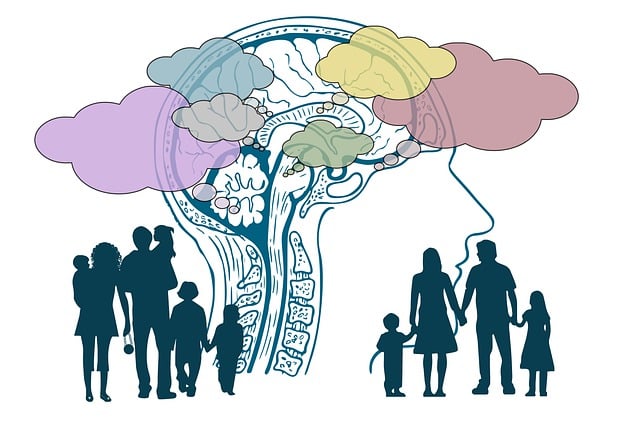Family planning mediation offers a personalized approach to creating flexible parenting schedules that consider unique family dynamics. Mediators facilitate open communication and collaborative problem-solving for diverse needs, including holiday traditions and long-distance parenting. Virtual platforms like Zoom support remote sessions, enhancing accessibility and fostering co-parenting relationships. Post-mediation support ensures effective plans through online tools, promoting stability and well-being for children and parents.
“Family planning mediation offers a transformative approach to parenting, empowering co-parents to navigate complex arrangements with ease. This article explores how mediation facilitates the creation of personalized schedules, ensuring each family’s unique needs are met. From crafting shared holiday traditions to managing long-distance parenting, we delve into the process, benefits, and ongoing support available through this collaborative practice. Discover how mediation fosters open communication, joint decision-making, and sustainable co-parenting relationships.”
- Customized Schedules: Tailoring to Family Needs
- Holiday Arrangements: Creating Shared Traditions
- Long-Distance Parenting: Bridging Miles Apart
- Mediation Process: Facilitating Open Communication
- Collaborative Approach: Joint Decision-Making
- Post-Mediation Support: Sustaining Co-Parenting
Customized Schedules: Tailoring to Family Needs

In family planning mediation, one of the key benefits is the ability to craft customized schedules that meet the unique needs of each family. These plans go beyond generic arrangements by considering the specific dynamics and preferences of both parents and children. For instance, a parent who works remotely may require flexible hours or virtual visitation sessions facilitated through Zoom mediation specialists, ensuring their involvement in their child’s life despite distance. On the other hand, a family navigating a divorce might need a co-parenting schedule that minimizes disruption to the children’s routines while allowing for quality time with both parents.
Mediation facilitates open communication and collaboration between parents, enabling them to create schedules that promote stability and well-being for everyone involved. This personalized approach ensures that the parenting plan is not just a legal document but a living arrangement tailored to the evolving needs of the family. Whether it’s accommodating school holidays, managing shared custody arrangements, or incorporating modern communication methods like online custody mediation, the goal is to foster healthy relationships and facilitate positive co-parenting relationships.
Holiday Arrangements: Creating Shared Traditions

In the context of family planning mediation, creating shared holiday traditions is a significant aspect of fostering harmonious co-parenting relationships. During mediation sessions, parents can work together to establish routines that honor both households and cultivate a sense of normalcy for their children. This involves discussing each parent’s preferences, cultural backgrounds, and important milestones to create a hybrid calendar that accommodates everyone. For instance, a family might decide on alternating years for specific holidays or devise creative solutions like virtual negotiation support sessions to facilitate long-distance participation in traditions.
A Zoom mediation specialist can play a crucial role in these discussions, ensuring open communication and promoting collaborative problem-solving. Internet divorce meetings are no longer limited to legal proceedings; they have evolved into platforms where families can maintain connections and build shared memories, even when physical distance is a factor. By prioritizing the well-being of their children and employing virtual negotiation support tools, parents can create lasting holiday arrangements that strengthen family bonds.
Long-Distance Parenting: Bridging Miles Apart

Long-distance parenting presents unique challenges when it comes to family planning and co-parenting. With miles separating parents, creating a robust framework for effective communication, flexible schedules, and meaningful time together becomes imperative. This is where family planning mediation steps in as a valuable resource. A Zoom mediation specialist can facilitate remote sessions, enabling parents to navigate the complexities of long-distance parenting with grace and efficiency.
These meetings allow parents to collaborate on crucial decisions regarding child custody, access, and visitation, ensuring their children’s best interests are at the heart of these arrangements. By utilizing internet divorce meetings, parents can bridge the physical distance, fostering a cooperative environment that promotes healthy co-parenting relationships, even when they’re apart.
Mediation Process: Facilitating Open Communication

Family planning mediation offers a unique approach to resolving conflicts around child custody and parenting arrangements. The process begins with an initial consultation where both parents meet with a trained mediator who listens to their individual needs, concerns, and aspirations for their children’s future. This open dialogue sets the foundation for a collaborative environment, fostering trust and understanding.
The mediator then guides the parents through a structured series of meetings or sessions, encouraging active participation in creating customized solutions. In these virtual negotiation supports, sensitive topics like holiday schedules and long-distance parenting frameworks are addressed. Online custody mediation allows parents to navigate complex situations remotely, ensuring accessibility and convenience while maintaining the integrity of the negotiation process. Through remote sessions, divorced couples can find common ground, making decisions that are in their children’s best interests without the need for face-to-face encounters during emotionally charged times.
Collaborative Approach: Joint Decision-Making

In family planning mediation, a collaborative approach emphasizes joint decision-making between parents, fostering an environment where everyone’s voices are heard and respected. This method goes beyond traditional negotiation by encouraging open communication and mutual understanding. Mediators act as facilitators, guiding parents to create customized schedules, holiday arrangements, and long-distance parenting frameworks that meet the unique needs of their children.
By participating in virtual negotiation support through remote session divorce or internet divorce meetings, parents can collaborate effectively despite physical distances. This modern approach ensures that family planning is not just about legal outcomes but also about nurturing a healthy, stable, and loving environment for children, even in cases where parents are separated or divorced.
Post-Mediation Support: Sustaining Co-Parenting

After successful family planning mediation, maintaining a cooperative relationship as co-parents is paramount. Post-mediation support plays a crucial role in helping parents sustain this partnership, especially when dealing with complex matters like long-distance parenting or holiday schedules. Many mediators offer ongoing guidance and resources to ensure the implemented plans remain effective over time.
Virtual negotiation support and remote session divorce options have become increasingly valuable, allowing co-parents to manage their arrangements efficiently, regardless of physical distance. Online custody mediation platforms provide a convenient and accessible way to address any concerns or make adjustments to the agreed-upon schedules, fostering an environment where open communication is encouraged and conflicts are resolved in a timely manner.
